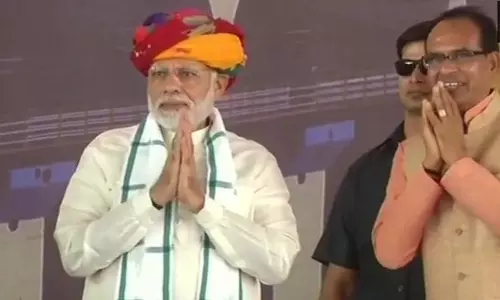
Facebook flagged CAA, violence against students as salient conflicts: Report
text_fieldsAn internet research memo revealed that communal violence, vigilante violence against students in New Delhi, the violence surrounding CAA protests in Lucknow, violence targeting North Indian migrants in Mumbai, antagonisms related to religion, and Bangladeshi migrants in Kolkata were flagged as 'salient conflicts' by Facebook. The report is dated July 14, 2020.
The memo said that police violence associated with CAA protests meet Facebook's definition of civil unrest, and inflammatory content spiked during the protests of late 2019. The social media giant has also internally designated the Delhi riots as a "hate event".
Facebook researchers looked at posts, and site visits focused on key Indian cities. The document has also listed protests against the CAA and the Delhi riots as "violent crisis events in India". It was also noted that these events create an "environment of risk for offline harms," reported The Indian Express.
The Facebook memo is titled "Communal Conflict in India". It is part of the documents provided to the United States Securities and Exchange Commission (SEC) and Congress by a former Facebook employee and whistle-blower, Frances Haugen. Congress received redacted versions, and it was given to global news organisations.
The internal reports say that one in three users of the apps - Facebook, Instagram, and WhatsApp - reported seeing inflammatory content within seven days or in more than seven days.
The survey results noted that in some Indian cities, some Hindu and Muslim participants felt comfortable sharing harmful content when they believed that members of their religion wouldn't see it. The memo pointed out it as a behaviour of "impunity in single-religion spaces". WhatsApp groups were a more comfortable space for most users. The documents state that Muslims in India felt threatened as hateful content targeted them primarily.
A spokesperson for Facebook (rebranded to Meta) told The Indian Express that enforcement against hateful content is a continuous process. Facebook takes all inputs available from their teams to ensure users' safety. "Our work is a multi-year journey. We continue to make significant improvements." The spokesperson added that the role of Facebook and WhatsApp groups formed by rioters to plan and coordinate attacks came under its lens.
"WhatsApp is an industry leader among end-to-end encrypted messaging services in preventing and combating abuse. WhatsApp continues to work closely with Law Enforcement agencies. It is always prepared to carefully review, validate and respond to law enforcement requests," said the Facebook representative.

















